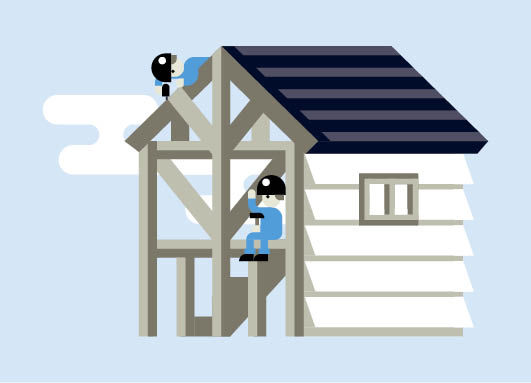Affordability
The first thing to consider when making a residential investment is whether you can really afford it. In particular, if you are taking out a mortgage, pay attention to the net income return expected and the potential for this to change due to interest rates and regulation.
“Be mindful of tax changes and tighter mortgage regulation to come, notably the phased withdrawal of income tax relief on mortgage interest payments. Mortgage regulation will stress test affordability at much higher mortgage interest cover ratios, reducing the amount of debt investors can take on,” says Lucian Cook, head of residential research at Savills.

Infrastructure
New infrastructure has the potential to metamorphosise areas in terms of their atmosphere, vibrancy and ultimately, value. Areas such as Slough have seen surges in value as a result of the forthcoming introduction of Crossrail and the prospective impact of Crossrail 2 and HS2 should be watched closely.
“Infrastructure initiatives are opening up swathes of land that were previously unsuitable for development, bringing major regeneration to new pockets of London in particular. As travel times into London are transformed, these areas will draw in new buyers, pushing up prices. Anticipate this and invest ahead,” says Mark Collins, chairman of residential at CBRE.
Returns
It is important not to get greedy and expect a huge uptick in value straight away. Property typically throws off a much higher income return than bonds or stocks and is a valuable cashflow generator.
“Focus on the cashflow and take what the market gives you in house price growth – residential is a great cashflow investment where rents rise in line with earnings over the long run. Focus on buying a really good rental property that is attractive to tenants and will have low voids,” says Richard Donnell, director of research at Hometrack.

Housebuilders
Many housebuilders have found themselves under considerable pressure in recent times following the result of the EU referendum with dramatically subdued share prices. This means there is added emphasis for them to hit their sales targets and investors can look to take advantage.
“Aspiring buyers can sometimes secure themselves a sizeable discount if they are looking to buy a new-build home from a major listed housebuilder that is approaching its financial year-end. Most listed housebuilders have either a June or December year-end and will invariably be keen to push through as many sales as possible as they approach those key dates,” says Nick Whitten, associate director of residential research at JLL.
Spending
Beware of the added costs of owning and managing a property – it is not as simple as adding up the demanded rent for the year and assuming that is your return. The higher returning nature of property inevitably comes with more drawbacks than lower yielding bonds.
“You can’t phone up your broker and sell it, and then you need to spend money to let and manage it. You will also have voids, potential repairs plus taxes, borrowing costs and professional fees,” says independent agent Henry Pryor.

Farming land
Considering purchasing a home with farming land can bring about advantages for investors looking to avoid punitive tax rates, with this sector often outperforming traditional residential investment.
“Farms and other mixed-use properties only attract a flat 5 per cent rate of stamp duty, compared with up to 12 per cent – or even 15% if it is a second home – for a high-value country house. The land can be easily let to a local farmer keen to expand their business without increasing fixed costs and provides a welcome income stream,” says Clive Hopkins, head of farms and estates at Knight Frank.
Auctions
The auctions market can be a rich source of opportunities for investors looking to pick up bargains from banks that have foreclosed or from sellers unwilling to invest the time and money to bring properties back up to standard.
“Sale by auction is open to all and whilst the bidding can be a nerve-wracking experience for the first-time auction buyer, it does mean that providing the seller’s minimum price is reached, you can make that one bid extra that secures the property for you,” says Richard Auterac, chairman and auctioneer at Acuitus.

Students
Students are traditionally depicted as short of cash and living off rations but the reality is often very different, and buying in a market with a number of academic institutions can be a wise bet to bring in a strong income.
“There are now more than 500,000 students living in the private rented sector outside of university-owned or purpose-built student accommodation. Buy-to-let investors who target large university towns or cities may be able to capitalise on this trend in September and October when students using clearing are most active,” says Nick Whitten, associate director of residential research at JLL.
Redevelopment
For those looking to be more adventurous, get stuck in and take on more risk there is huge upside potential in redevelopment. However, do not underestimate costs and the time-consuming nature of doing so.
“Converting old pubs to homes or taking two flats and making them a family house again can be lucrative. Follow the money and consider who has the ability to buy what they want and how you can offer it. Many old commercial buildings in market towns have been getting consent to be returned to residential use and it is worth considering if there is a suitable building in your town,” says independent agent, Henry Pryor.
